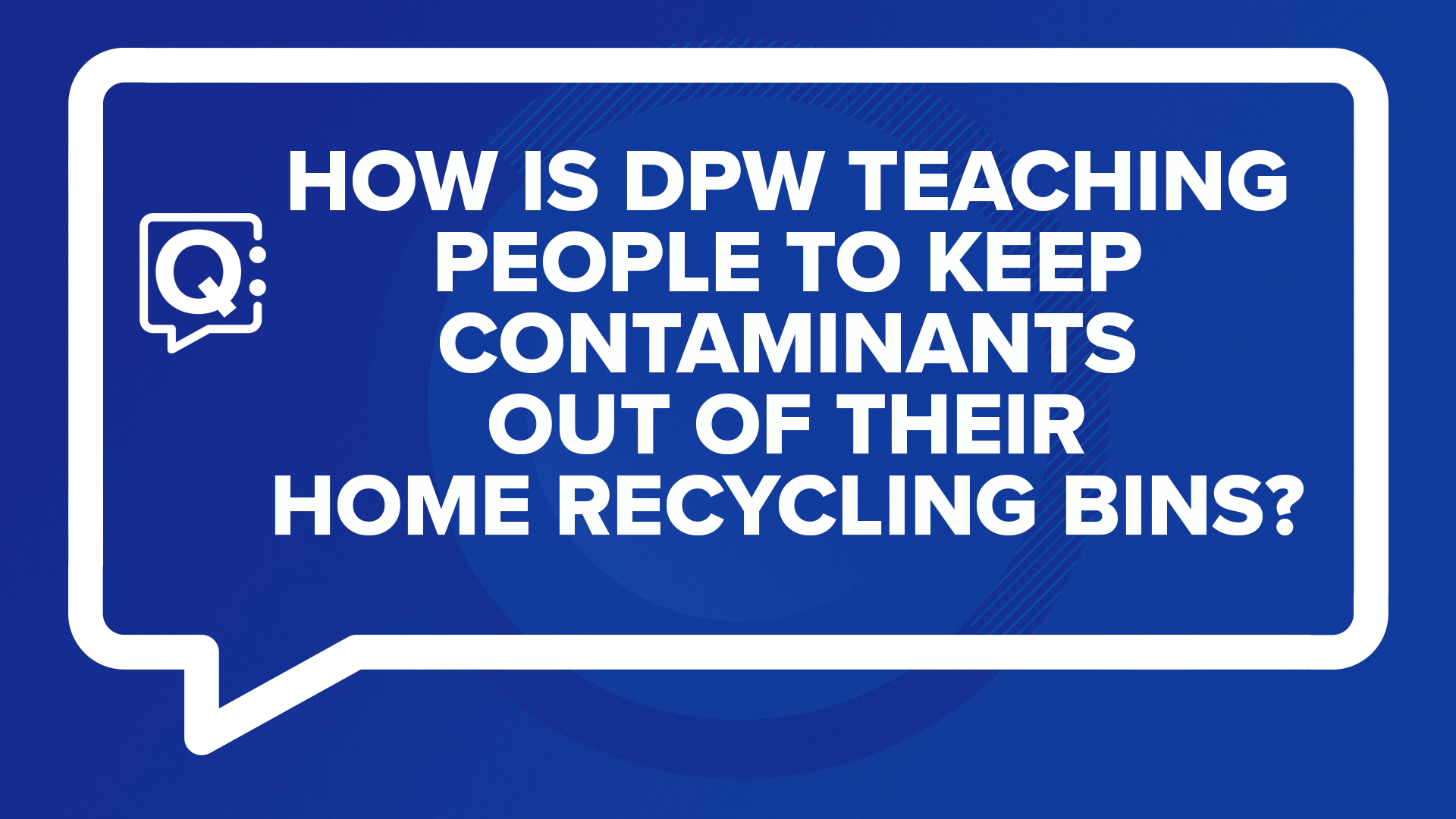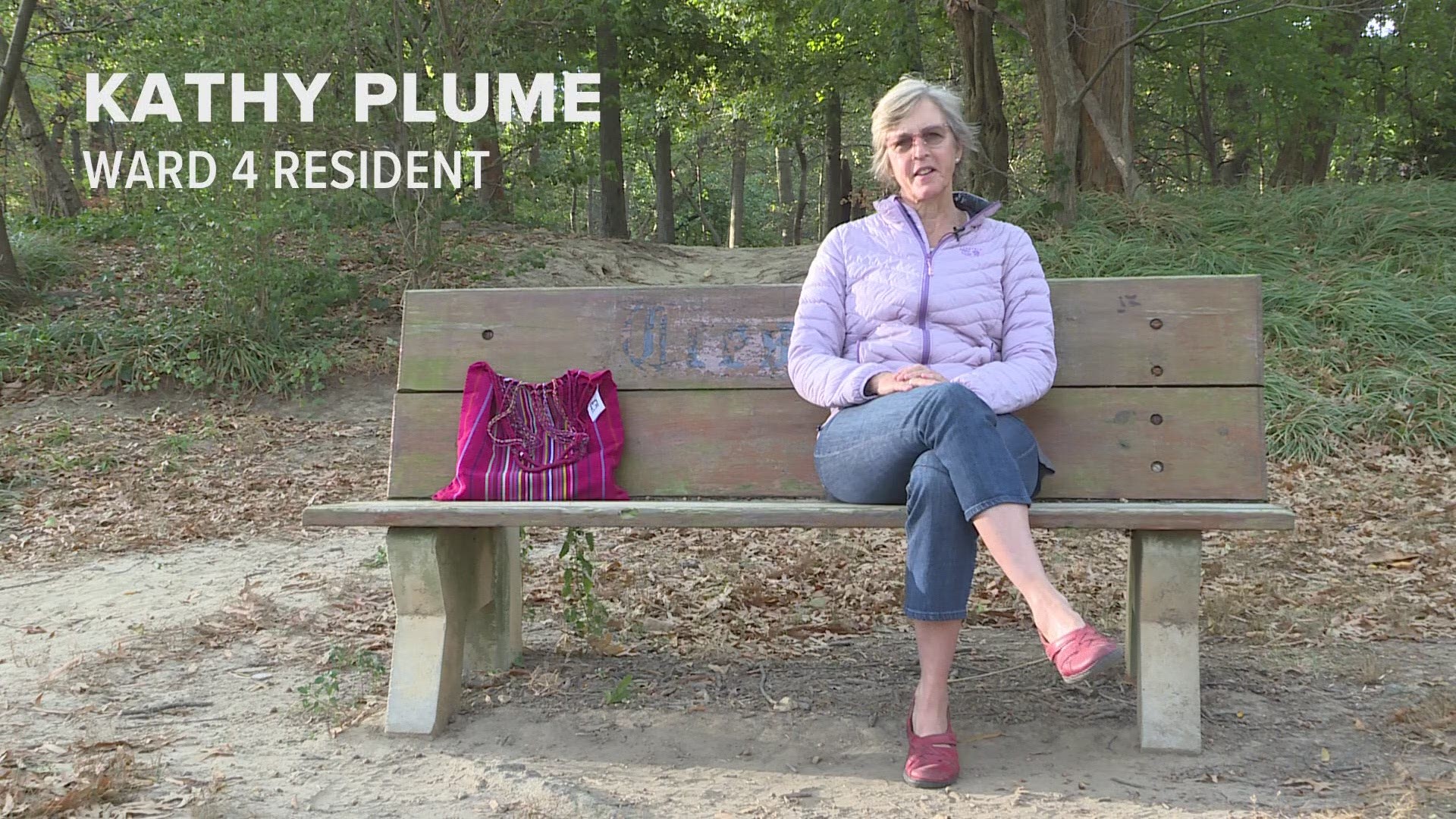'Oops' they did it again: DC recycling program lets residents know when they contaminate their recycling #TheQandA
Our #TheQandA team met up with Ward 4 resident Kathy Plume who wanted to know how DPW is working to make sure residents recycle properly.

Question What is DPW doing to help make sure that citizens recycle properly?
Recycling. In school, we're taught that it's important. We know that it's a better option (environmentally) than sending our plastics to the landfills. But man, is it tough to get people to do it properly.
Kathy Plume is a Ward 4 resident and Vice Chair of D.C.'s chapter of the Sierra Club. She's an avid recycler and believes that others in the District want to recycle, but just don't know how to do it properly.
Kathy reached out to our #TheQandA team wanting to find a better way to educate her neighbors, asking for help. Her question: What is DPW doing to help make sure that citizens recycle properly?
Answer DPW's "Feet on the Street" education campaignSubtitle here
To get an answer for Kathy, we met up with Chris Geldart, Director of the Department of Public Works.
Chris told us about DPW's "Feet on the Street" education campaign. It's happening in selected areas of D.C., from now through America Recycles Day, on Nov. 15. According to DPW, the campaign aims to "help reduce contamination in residential recycling collections, with a particular focus on keeping plastic bags, wraps, and films out of recycling bins."
But how?
DPW inspectors armed with "Oops" tags, inspect residential recycling bins for contamination. If they find any, they mark those items on an "Oops" tag and attach them to the bins for residents to see when they return home. It's kind of like having an accountability partner.
Which neighborhoods will be monitored?
DPW explained that the routes selected have been identified as having the most contamination. Right now the routes monitored by the "Feet on the Street" teams represent about 10 percent of all D.C. recycling routes.
More Details What does the "Feet on the Street" crew see the most?
So what do they usually find?
"The biggest thing is when folks put the recycling into the cans," Chris said. "Don’t put it in bags. Put it in the can. Wash it please and then put it in the can."
DPW calls those bags tanglers. Those are major recycling no-nos, and Chris told us some more that you might not have considered.
"Yard waste," Chris said. "Yes -- we want to compost, we want to take care of our yard waste in the right way, but it’s not the recycling bin. Those yard waste type of things: bags and tanglers, create all sorts of havoc inside the machine. So when we get it [to the] the material cover facility and they see that stuff in our load, they just turn it away. And now all that recycling gets sent to trash instead because a couple few folks that put the wrong stuff in there ruins that whole load."
Is the program working?
According to Chris, when the "Feet on the Street" campaign goes through a neighborhood, there's "upwards of 25 percent improvement of what we see inside the cans."


